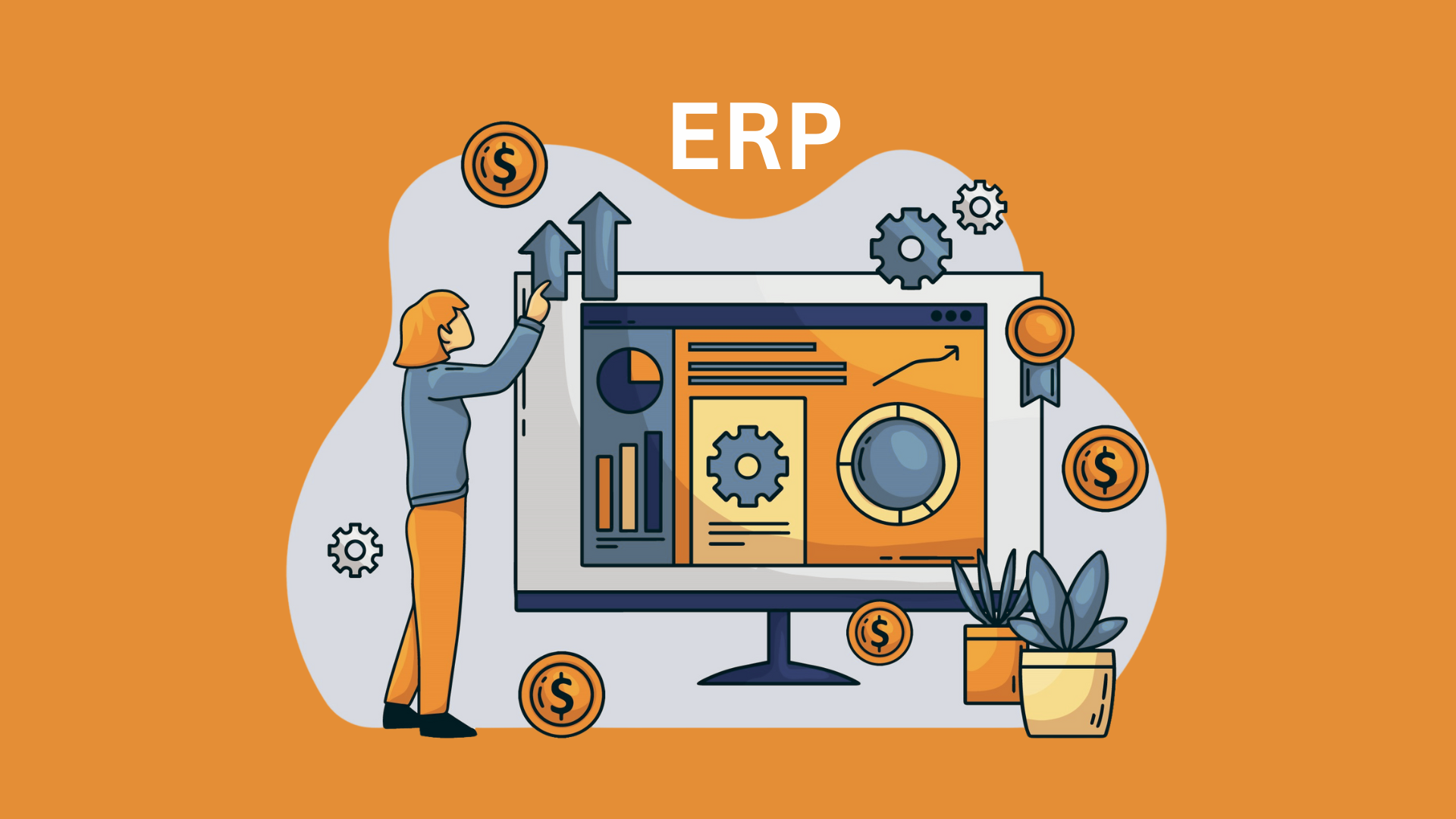Implementing ERP (Enterprise Resource Planning) may increase efficiency for modern businesses in several industries. ERP can be affordable and offer substantial advantages to a business if properly executed and assisted by experts. An ERP system automates business activities and offers insights by using a single database that gathers data from traditionally divided departments like accounting, manufacturing, sales, and human resources.
By using intelligent technologies like robotic process automation (RPA), machine learning (ML), and artificial intelligence (AI), ERP software automation increases process efficiency, enhances data visualization for teams, and minimizes duplication and inconsistency to maintain error-free data over time.
What is ERP Automation?
The term “ERP automation” describes the automated execution of conventional business procedures that are included in an ERP system, such as accounting, inventory management, data management, and procurement. The second, more futuristic description talks about how features and functions of the ERP system may benefit from the use of contemporary technologies like AI, ML, RPA, and the Internet of Things (IoT) to deliver more sophisticated automation and insightful data. In any case, the objective of ERP automation is to enhance productivity, decrease mistakes, and automate tedious manual operations by facilitating instant access to data, streamlining business procedures, and producing insights that facilitate better decision-making.
For instance, Let’s say a client requests to place an order using credit. When a consumer phones a salesperson in the traditional way, the salesperson manually passes the required information to the warehouse, where employees process the transaction – provided there is sufficient inventory on hand to satisfy the request. Upon order fulfillment, accounts receivable initiates payment collection.
Orders are placed online by customers using automated ERP systems from e-commerce stores that have access to real-time inventory information. Following an automated forwarding of the order to the warehouse, the customer’s online account is updated with tracking information and instructions on when and how to pay the invoice online once the item has been chosen and sent.
Following payment of the invoice, the ERP system monitors cash flow, ensures that the payment is applied to the appropriate accounts, and provides an accurate financial record. There is no need for various parties to continually input the data at each stage since all the relevant data, including purchase orders, delivery estimates, pricing, deposit slips, and more, are automatically cross-referenced and verified for accuracy.
Additionally, all pertinent stakeholders are informed immediately if there are any issues, such as an unanticipated inventory shortfall brought on by a natural disaster, to guarantee that the right actions are taken. ERP automation saves manufacturing companies time and money by lowering the possibility that a customer payment will be applied to the incorrect account or that an order will be dispatched incorrectly.
Use Cases of ERP Automation in Different Sectors:
1. Data Analysis and Reporting:
ERP automation helps businesses optimize essential business processes and make use of more flexible solutions to handle their data in a safer, more effective way. This includes payroll processing, invoicing, inventory management, and more.
Additionally, businesses may combine diverse information into a single platform and obtain a better understanding of operations throughout the whole organization, not just within a specific team or department, by providing a “birds-eye view” of various sectors of their business through improved data analysis and reporting features.
2. Purchase Orders:
Purchase orders from companies and consumers can be optimized by ERP systems. For instance, it could be crucial for a company to promptly pay the supplier when it sets a buy order for raw materials to guarantee prompt delivery or to fulfill the supplier’s extended credit terms. ERP systems can be customized to the needs of the business to either automatically approve payments or demand them. For instance, a furniture maker may set up monthly recurring supply orders if it has to keep a consistent supply of wood to keep making its products.
However, for specialty items, such as a certain type of chemically treated wood that costs more, the company might wish to be informed when stocks are running short so that it can get approval before making a costly purchase. ERP software may automate tasks that firms need to do regularly and send out notifications when managers need to have higher levels of control through personalized purchase order rules.
3. Task Scheduling:
ERP automation manages and optimizes operations, so you don’t have to, handle tasks like displaying workflow and approval processes, monitoring trends in workload uncertainties, determining how sensitive core workflows are to automation, analyzing the security of data within the workflows, and more.
ERP automation improves team and departmental operations and enables businesses to take advantage of more accurate job automation for increased output and effectiveness.
4. Accounts and finance:
The fields of accounting and finance stand to gain greatly from ERP automation. Automation can rapidly cross-reference data throughout the organization and reduce human error. For a group of bookkeepers, procedures like cross-referencing invoices with accounts receivable and matching purchase orders with accounts payable balances can be laborious and time-consuming.
However, days-long tasks may now be completed in a matter of minutes thanks to ERP automation, which also offers a more accurate and transparent accounting procedure. Precise accounting aids in the prevention of deception and maintains data on the most crucial component of any enterprise – the finances – clear and available to all managers.
5. Inventory control:
A company that overproduces will have to spend to make and store items that might never be sold. Customers will be stuck with backorders and delays if it is under produced, which will make them more likely to shop elsewhere. ERP systems gather information that companies may use to better predict demand and create efficient inventory management plans.
If a food supplier, for instance, used its ERP system to create detailed, well-organized sales statistics over the previous several years, it could efficiently manage increasing output during a seasonal rush without manufacturing too many commodities that would spoil and become unsaleable.
6. Planning and Projecting:
ERP automation gives you the insight to evaluate required data and the functionality to create more precise predictive plans when it comes to projecting future business operations, budget plans, and operating expenses.
Businesses can guarantee that the appropriate stakeholders have access to the proper information and enhance crucial decision-making across time with increased planning and forecasting efficiency and accuracy.
7. Customer support:
Companies can be concerned that a high level of automation could irritate consumers by making them unable to communicate with actual people and by using bots. However, there is no need for customer service to be a binary issue. For instance, a lot of companies use a hybrid approach to customer service, whereby certain tasks are automated while more delicate issues are handled by a team of employees in the customer service or sales department.
Combining the greatest aspects of both worlds, this approach to customer service enables businesses to reap the benefits of modern technology while maintaining the personal touch that consumers need.
8. Data administration:
Any authorized employee who answers a client call may access that account’s information and assist in solving an issue without having to transfer the customer three or four times by using the centralized database and secure data management capabilities of an ERP system.
Few things make consumers less pleased than having to repeat their account information just to be moved and have the entire procedure start over. Satisfied customers are more likely to be repeat customers. Customer service representatives are not the only staff members who benefit from centralized data as it allows them to swiftly obtain the information they want without interfering with other process stages.
Wrapping It Up:
Automated ERP software is essential for managing complicated processes, structures with multiple personnel, and larger data volumes in the modern corporate environment, where organizations must contend with additional challenges. Challenges that have forced businesses to change their strategies and, in turn, forced the development of new technologies to oversee every aspect of the operation. From operations to procedures and finance to the integration of key sectors. The company operations experienced a notable increase in efficiency due to the use of ERP automation. If you’re thinking about making an ERP automation investment, you should make sure the ERP software you select can work smoothly with the technologies and best suits your organization’s demands.





